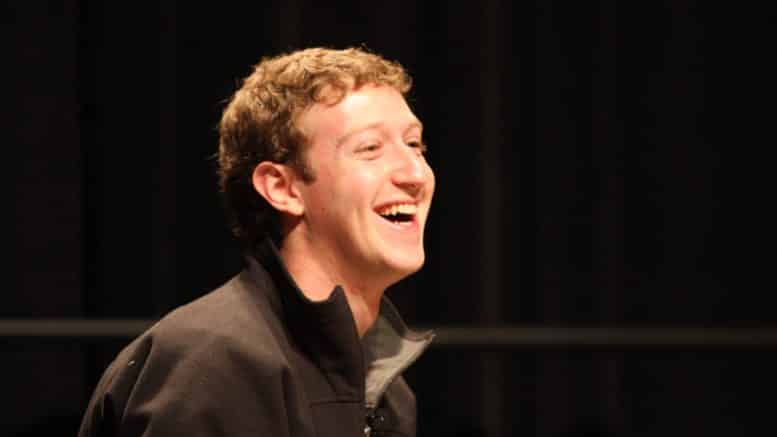Zuckerberg: Warns AI Companies ‘Trying To Create God’, But He Will Save Us

It’s a tragic comedy. Zuckerberg seems jealous that his industry cohorts are creating “God” without him and, um, not casting him in the role of the messiah? Well, he is pretty sure that he can save us from being misled because HIS AI is inspired far beyond the others. His holographic, goggle-wearing future promises that we can all be successful YouTube or Instagram creators. That’s all you want to do, right? ⁃ TN Editor
The Meta founder – whose company boasts an expansive portfolio of AI products – insists his approach is different from the rest.
“I find it a pretty big turnoff when people in the tech industry kind of talk about building this one true AI,” Zuckerberg said.
“It’s almost as if they think they’re creating God or something. And it’s like, that’s not what we’re doing.”
The tech tycoon sat down for an interview with YouTube creator Kane Kallaway to discuss the future of AI and tease the tools in development at Meta.
The Meta and Ray-Ban glasses, for instance, could soon feature floating screens across a wearer’s field of vision.
Several renditions of the product have hit the market since its release in 2021, but Zuckerberg believes the technology can be pushed further.
He aspires for the product to include full holographic displays while still looking like a pair of glasses rather than a headset.
“I think over time these two paths will just sort of converge,” Zuckerberg said.
The tech magnate also discussed Llama 3, Meta’s latest AI model, which he dubbed “pretty close to caught up with the best models that are out there.”
Zuckerberg took a jab at his competitors, namely Google and OpenAI, for creating what he views as single-purpose AI tools.
He vowed to retain the basic Meta AI assistant – a chatbot that can generate images and plan an itinerary – while personalizing AI tools for different users.
“There need to be a lot of different AIs that get created to reflect people’s different interests,” Zuckerberg said.
“So, a big part of the approach is going to be enabling every creator, and then eventually also every small business on the platform, to create an AI for themselves to help them interact with their community and their customers if they’re a business.”
The billionaire offered a blunt tip for survival in the rapidly changing digital sphere.
“As technology evolves, the tools that we use will evolve and part of just being a talented person on the edge with all this is just staying up to date with the tools,” he said.
Zuckerberg stressed his belief that AI won’t stifle creativity.
“Fundamentally, I think that there are going to be a lot more creative opportunities in the future with more powerful tools that allow people to do that,” he said.
Zuckerberg emphasized how AI tools could be used to increase the productivity of creators on Facebook and Instagram, tailoring much of the conversation toward social media influencers.
It is worth noting Zuckerberg fell short of addressing the ethical qualms about artificial intelligence tools.
As AI tech continues to develop, more creatives than ever are speaking out about AI learning from their work without their consent.
Outrage erupted when Adobe changed its terms of use, which were interpreted to mean that the company was training AI on users’ work. (Adobe has since re-issued the terms).
Much of the concern lies in the functionality of generative AI models – so-called because they “generate” content by learning from huge datasets that are often scraped from the Internet.
The AI-generated response may mimic the style of real artists. In fact, users can submit prompts such as an artist’s name to return results in a desired style.



